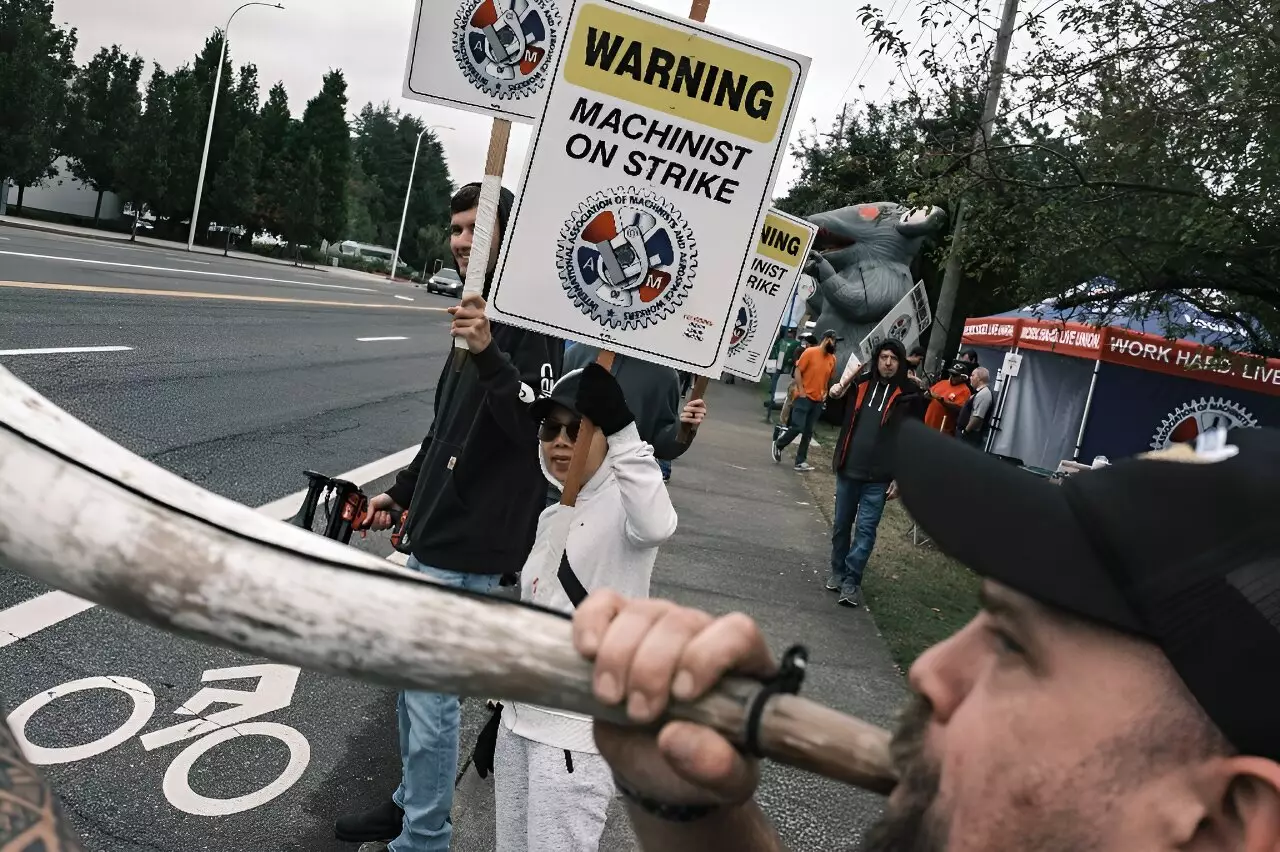The ongoing strike by approximately 33,000 workers at Boeing has reached a notable impasse, following a recent announcement by the International Association of Machinists and Aerospace Workers (IAM) that negotiations had “broken off.” This situation illustrates the complexity surrounding labor relations within one of the world’s largest aerospace manufacturers. The strike, which began on September 13, was triggered after employees in the Pacific Northwest decisively rejected a contract proposal, a move that subsequently halted the production of key aircraft models like the 737 MAX and 777.
Boeing has expressed its willingness to re-enter discussions, emphasizing its desire to “reset” relationships with the unionized workforce and acknowledge the importance of negotiating in good faith. However, as highlighted in the IAM’s latest communications, the company’s proposed terms have fallen short of what workers find acceptable, particularly regarding pension benefits and compensation structures. There exists a stark contrast between Boeing’s statements and the union’s portrayal of the negotiations, suggesting that any potential agreement remains distant.
One of the core grievances arising from the strike revolves around Boeing’s pension plan, which remains a sticking point in negotiations. The IAM has indicated that Boeing’s refusal to “unfreeze” the defined benefit plan has left many workers feeling undervalued and insecure about their financial futures. The lack of substantive engagement from Boeing on related issues, including swift wage progression, enhanced pay, and improved benefits, further complicates this tense labor dispute.
Boeing’s recent proposal, touted as the “best and final offer,” included a significant wage increase of 30% along with an annual bonus reinstatement. Yet, the IAM swiftly rebuffed this offer, outlining that the changes merely scratched the surface of workers’ concerns. The union’s insistence on comprehensive discussions surrounding pension plans and overall compensation indicates a broader discontent that is not limited to immediate wages.
As negotiations remain stalled, the ramifications of the strike extend beyond the immediate impact on Boeing’s assembly lines. Prolonged disruptions to production could have significant financial repercussions, influencing not just Boeing’s revenues but also the stability of its supply chains and the broader aerospace industry.
With striking workers expressing their determination to stand firm for more equitable treatment and better working conditions, the situation calls for urgent attention. Both parties must navigate these negotiations with a constructive mindset; otherwise, the stalemate could lead to further unrest among workers and potentially damage Boeing’s reputation as a leading employer in the aviation sector.
The striking workers at Boeing find themselves at a crossroads, battling for their rights while the company struggles to reconcile its operational needs with the demands of its employees. As the IAM remains open to future talks, the hope for a resolution hinges on both sides being willing to engage in more earnest dialogue, recognizing the necessity of compromise in labor relations.


Leave a Reply